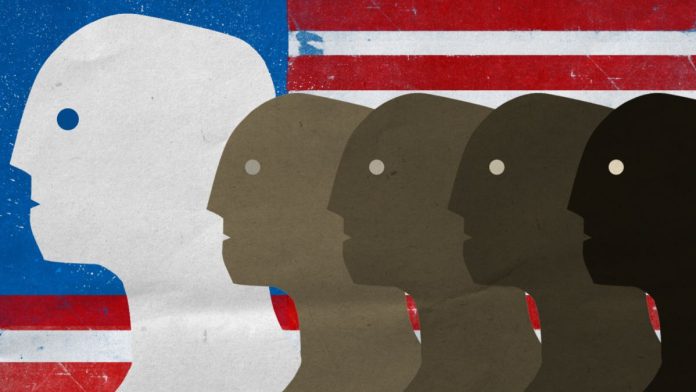The Civil War in 1864
Several soldiers on both sides of the Civil War expressed the idea that the war was over slavery. Many northern soldiers thought that ending slavery was a way to defeat the traitorous southern slave owners and ensure a victory. Hence, making compromises with the slave owning Confederacy over the issue of slavery was completely out of the question. It was not that they thought Blacks should be the equal of whites for it was a more practical matter in their minds. The problem was they supported the end of slavery but many did not want to see Blacks being the equals of Whites. By 1864, many white northern soldiers accepted the fact that slavery needed to end but became worried about Blacks gaining social equality. Anti-Black hatred grew after 1864 in the ranks of northern soldiers.
Pamphlets opposing the idea of Black and White relations, such as “racial-mixing, began to appear more frequently. This was made even more of a problem as Confederate traitors began to see more and more Black troops on the battle field. White Union soldiers complained that they were being killed even after they surrendered because Confederate soldiers were mad at them for supporting freedom for Blacks. Some northern soldiers were quoted as saying, “I am for liberty, but not for equality.” This was the power of white supremacy that was branded in the minds of Americans from the very beginning of the foundations of the United States. The United States was founded on slavery and white supremacy. This reflected a backward push away from racial justice and a betrayal of the war against racism that existed more strongly before 1864.
Black soldiers had their own publication during the Civil War—it was called “The Black Warrior.” They argued that compromise with slavery would allow the slave owners to continue their hateful institution and that the total destruction of slavery was an absolute necessity. Black soldiers knew that if every Black slave were freed in the United States they still would not be free. They had a solid understanding that white supremacy would not end this side of eternity. The proof of their hatred showed its ugly face at Fort Pillow as Black soldiers who surrendered were murdered by Confederates. The president of the Confederacy, Jefferson Davis, issued a proclamation that Black captured soldiers would be treated as “runaway slaves.” Black prisoners were often sold back into slavery or simply murdered.
The sick “southern heritage” idea that many use today makes claim to an aura of White manhood and as an excuse to make southern soldiers look like some kind of hero. The idea that Black men could marry White woman stabbed them in the heart as this was the invented strain of the manhood of a southern man. Most Confederate soldiers grew up with a fake history of superiority and this explains why they fought for the lazy plantation owners. White supremacy was hammered into their minds to the point of ignoring class differences. Unfortunately, protecting white supremacy became the reason to die in battle as it became their only self-interest.
The South claimed that if they lost the war nature would be turned backward and away from what God supposedly intended. They corrupted the Bible and made the ridiculous argument that Blacks were animals and that God made Whites superior. They were taught this garbage in Sunday schools and at church service their whole life. These are some of the reasons that white supremacy is so hard to destroy, and it must be destroyed.








